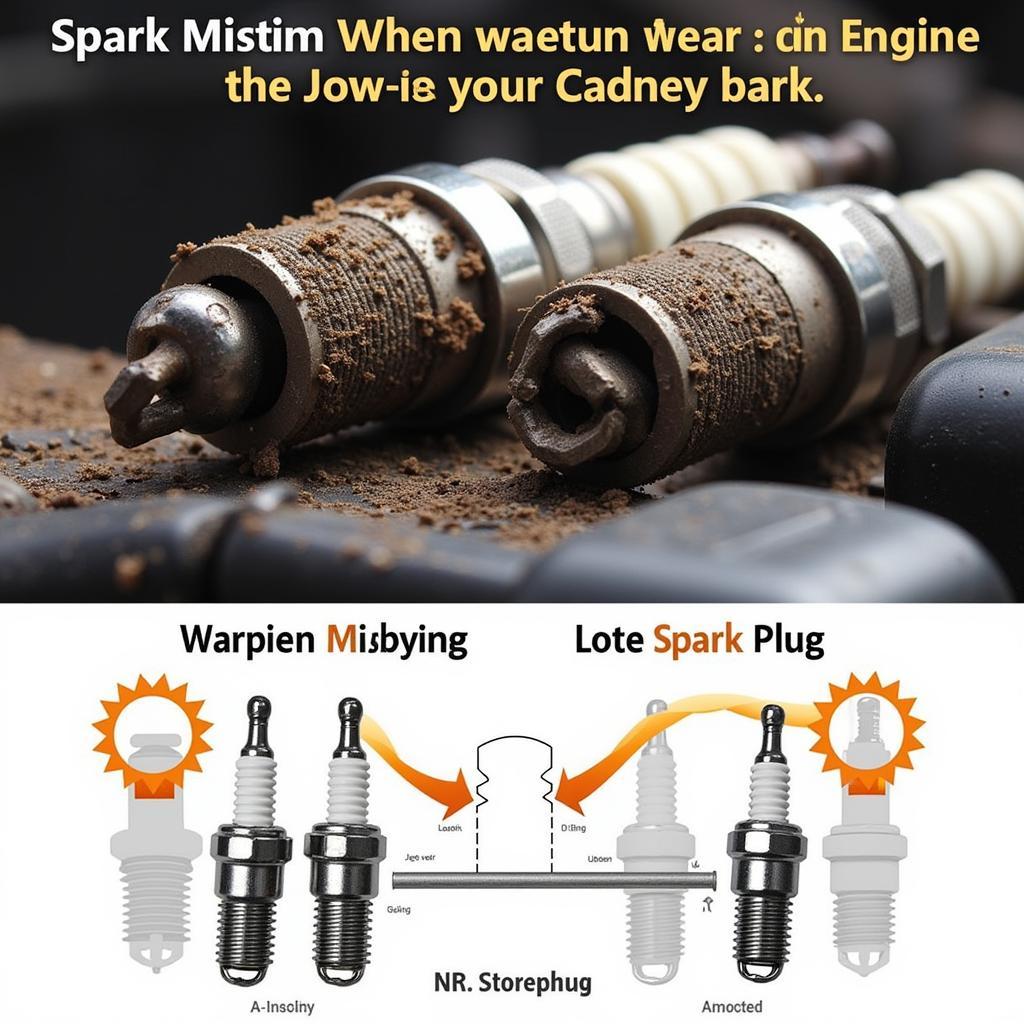A car is a complex machine with numerous interconnected systems. Understanding common mechanical problems can save you time, money, and frustration. This article dives into the most frequent car troubles, providing insights for car owners, mechanics, and technicians alike.
As a car owner, you rely on your vehicle for daily commutes, errands, and leisure trips. A well-maintained car ensures safety and reliability, while mechanical problems can lead to costly repairs and unexpected breakdowns. Understanding what can go wrong under the hood empowers you to address issues proactively or communicate effectively with your mechanic. For mechanics and technicians, a comprehensive understanding of these problems is crucial for accurate diagnosis and efficient repairs. This knowledge allows you to provide valuable service to your customers and maintain a strong reputation. See Will CarMax buy a car with mechanical problems?.
Common Engine Problems
Engine issues often manifest as poor performance, unusual noises, or warning lights. Common culprits include worn spark plugs, a failing fuel pump, a clogged fuel filter, or a faulty oxygen sensor. These issues can lead to reduced fuel efficiency, difficulty starting, and even engine damage if left unaddressed. Regular maintenance, such as oil changes and tune-ups, can prevent many of these problems.
 Worn spark plugs causing engine misfire
Worn spark plugs causing engine misfire
Transmission Troubles
The transmission is responsible for transferring power from the engine to the wheels. Slipping gears, rough shifting, or a whining noise can indicate transmission problems. Low transmission fluid, a worn clutch, or internal damage are potential causes. Addressing these issues promptly is crucial to avoid complete transmission failure, which can be a very expensive repair. You can learn more about car troubles on a car mechanical problems website.
Brake System Issues
A responsive brake system is paramount for safety. Squeaking or grinding brakes, a soft brake pedal, or a pulsating pedal can indicate problems with the brake pads, rotors, calipers, or brake lines. Regular brake inspections and timely replacement of worn components are essential for safe and reliable braking.
Suspension and Steering Problems
The suspension system keeps your car stable and comfortable on the road. A bumpy ride, excessive bouncing, or uneven tire wear can indicate worn shocks or struts, damaged control arms, or other suspension component issues. Problems with the steering system, such as difficulty turning or a vibrating steering wheel, can be caused by worn tie rod ends, a failing power steering pump, or other steering component issues. What are some car throttle mechanical problems?
Electrical System Malfunctions
Electrical problems can range from a dead battery to a malfunctioning sensor. Dim headlights, flickering lights, or a malfunctioning starter can indicate problems with the battery, alternator, or wiring. Modern cars are increasingly reliant on complex electronic systems, and diagnosing these issues often requires specialized diagnostic equipment.
“A thorough understanding of automotive electrical systems is essential for any mechanic working on modern vehicles,” says John Peterson, a certified automotive technician with over 20 years of experience. “With the increasing complexity of electronics in cars, keeping up with the latest diagnostic techniques is critical for accurate troubleshooting and efficient repairs.”
What Are Some Different Sounds Mechanical Problems on Cars Make?
Different mechanical problems can produce distinct sounds, providing valuable clues for diagnosis. A knocking sound from the engine could indicate a problem with the bearings or pistons. A grinding noise when braking often points to worn brake pads or rotors. You can find more information on different sounds mechanical problems on cars make.
Can You Trade in a Car That Has Mechanical Problems?
Yes, you can often trade in a car with mechanical problems, but the trade-in value will likely be lower. The dealer will factor in the cost of repairs when assessing the vehicle’s worth. Find out more if you can trade in a car that has mechanical problems.
Conclusion
Understanding What Are Mechanical Problems In A Car is crucial for both car owners and automotive professionals. Regular maintenance, prompt attention to warning signs, and accurate diagnosis are essential for keeping your car running smoothly and safely. By proactively addressing potential issues, you can avoid costly repairs and extend the life of your vehicle.
Need help with your car? Connect with us at AutoTipPro for expert advice and assistance. Call us at +1 (641) 206-8880 or visit our office at 500 N St Mary’s St, San Antonio, TX 78205, United States.




Leave a Reply